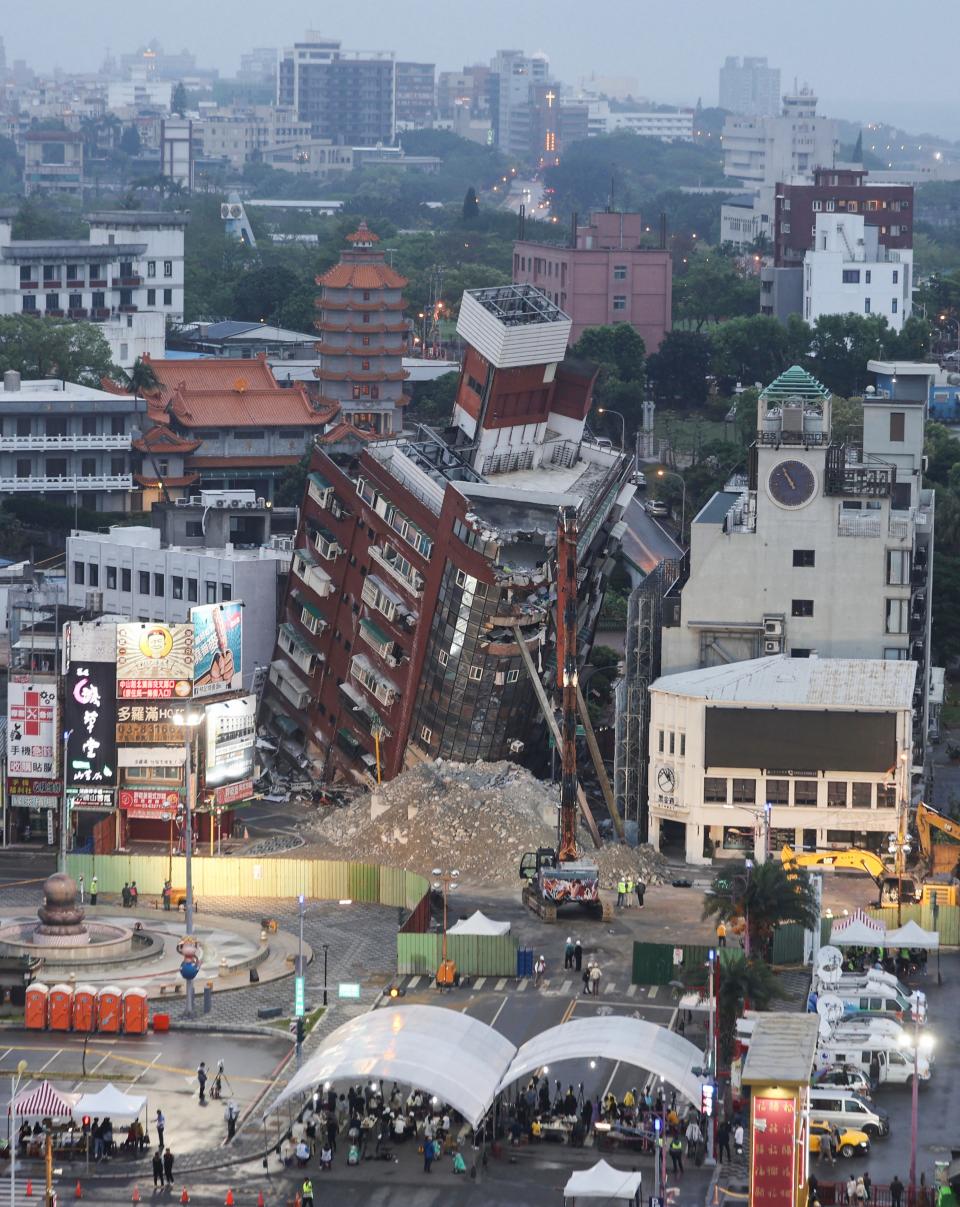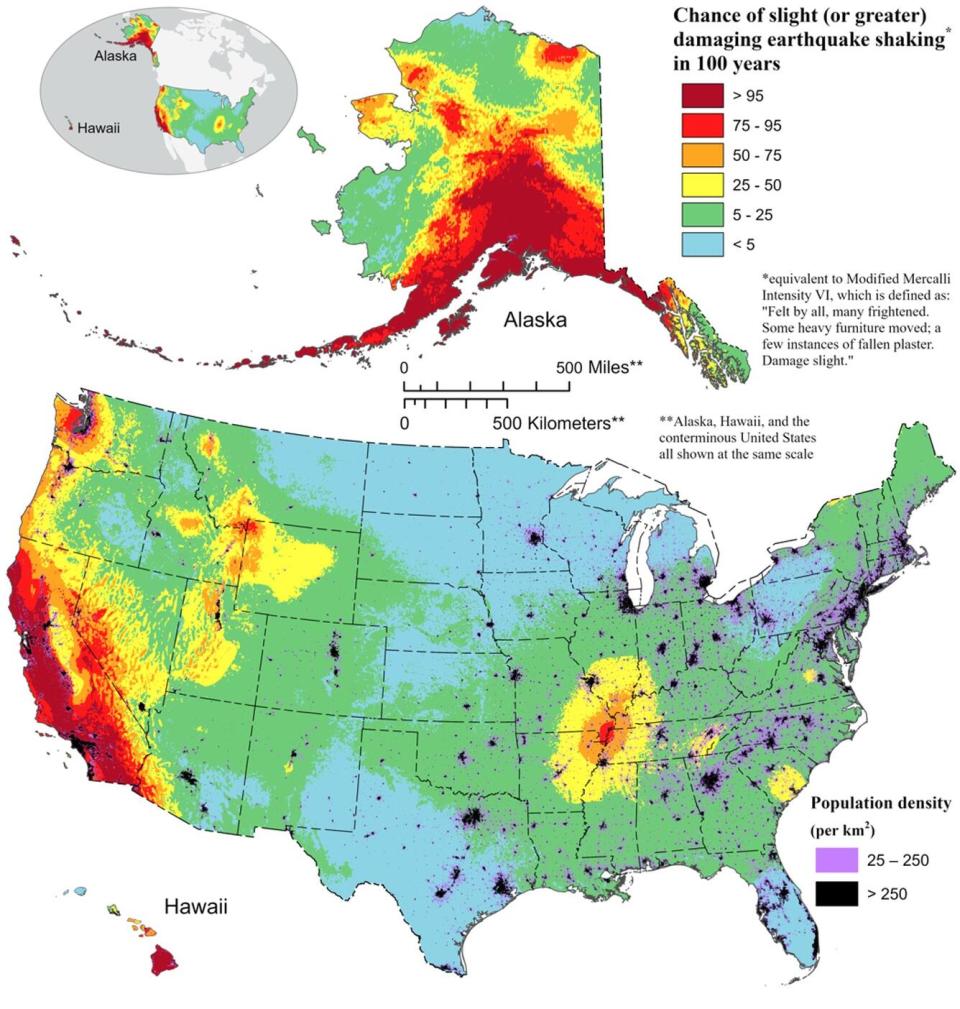Can an earthquake happen in Volusia-Flagler? In wake of Taiwan quake, here's what to know
After a massive earthquake killed nine and injured over 1,000 people early Wednesday in Taiwan, Sunshine State residents and visitors might ask: Do earthquakes happen in Florida?
In a state well-known for its encounters with hurricanes, tropical storms, drought and even tornadoes, the notion of an earthquake rattling the palm trees seems far-fetched.

Yet earthquakes have been recorded in Florida as far back as 1879.
Here’s what you need to know about the earthquake this week in Taiwan and what the likelihood is that a similar natural disaster might happen in the Sunshine State:
What happened in the Taiwan earthquake?
After a massive earthquake killed nine and injured over 1,000 people early Wednesday, rescuers in Taiwan were combing through the rubble this week to find scores of people missing or trapped, while experts say a slew of aftershocks could make the search and rescue even more dangerous, according to reporting in USA Today.
Taiwan's National Fire Agency said at least 1,050 people were injured when the earthquake, measured as 7.2 magnitude by Taiwan officials and 7.4 by the U.S. Geological Survey, struck near the east coast city of Hualien at about 8 a.m. local time.
Hualien is a popular tourist destination 100 miles south of Taipei, where buildings swayed and some damage was reported. A series of aftershocks followed, reaching up to 6.4 magnitude.
The quake set off a tsunami warning for southern Japan and the Philippines that was later lifted.
Can Florida get earthquakes?
According to experts, earthquakes in Florida are extremely rare since the state is not located near any tectonic plate boundaries. The closest fault line to Florida runs through the Caribbean Sea, just north of Puerto Rico and the Dominican Republic and south of Cuba toward Guatemala.
Florida ties North Dakota as the state with the fewest earthquakes per year. Between 1975 and 1995, the state was one of only four that recorded no earthquakes at all. The others were Iowa, Wisconsin and North Dakota.
Even so, the state isn't completely free from feeling any sort of earthquake from time to time, even if they’re not as strong as those elsewhere worldwide.
According to the U.S. Geological Survey, an earthquake shock occurred near St. Augustine, in the northeast part of the State, in January 1879. The nation's oldest permanent settlement, founded by Spain in 1565, St. Augustine experienced heavy shaking that knocked plaster from walls and articles from shelves, according to witness accounts.
Similar effects from the quake were noted at Daytona Beach, 50 miles south. At Tampa, the southernmost point of the felt area, the trembling was preceded by a rumbling sound at 11:30 p.m. Two shocks were reported in other areas, at 11:45 p.m. and 11:55 p.m. The tremor was felt through north and Central Florida, and as far north as Savannah, Georgia.
In January 1880, Cuba was the center of two strong earthquakes that sent severe shock waves through the town of Key West, Florida. The tremors occurred at 11 p.m. on Jan. 22 and at 4 a.m. on Jan. 23.
What’s the most recent earthquake that affected Florida?
On Feb. 7, a rare magnitude 4.0 shook some Floridians in Brevard County on the state’s East Coast.
The earthquake occurred in the Atlantic Ocean, about 100 miles east of Cape Canaveral around about 10:48 p.m., at a shallow depth of about 6 miles, according to the U.S. Geological Survey.
In case you missed it: 4.0 earthquake off the coast of Florida: How to stay safe when, and if, it happens again
Residents from Merritt Island to Palm Bay reported feeling the moderate quake since it took place close to the surface of the ocean floor. Posts flooded social media groups, asking about what had happened.
How likely are earthquakes in Florida?
There have been more than 20 earthquakes reported in Florida since 1992, immediately north of the state's border in Alabama, or off the coast in the Gulf of Mexico and Atlantic Ocean, according to the U.S. Geological Survey.

According to an updated National Seismic Hazard Model released in January by the U.S. Geological Survey, most of Florida has a 5% chance or lower of experiencing a damaging earthquake in the next 100 years. But the Panhandle and an area of North Florida down to a line stretching from Jacksonville southwest to south of Cape Coral has a 5-25% chance, the agency stated.
If an earthquake happens, how can I stay safe?
Here's what can be done ahead of time to be prepared should an earthquake strike, according to Ready.gov:
Practice "Drop, Cover, and Hold On" with loved ones.
Create a family emergency communications plan that has an out-of-state contact. Plan where to meet if you get separated.
Secure heavy items in your home like bookcases, refrigerators, water heaters, televisions and objects that hang on walls. Store heavy and breakable objects on low shelves.
For those in the Panhandle, consider obtaining an earthquake insurance policy. A standard homeowner’s insurance policy does not cover earthquake damage.
During an earthquake, officials offer this guidance:
If you are in a car, pull over and stop. Set your parking brake.
If you are in bed, turn face down and cover your head and neck with a pillow.
If you are outdoors, stay outdoors away from buildings.
If you are inside, stay and do not run outside and avoid doorways.
This article originally appeared on The Daytona Beach News-Journal: Can an earthquake happen in Volusia and Flagler counties?

